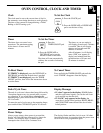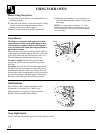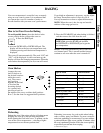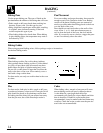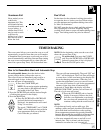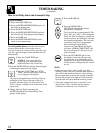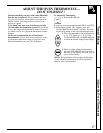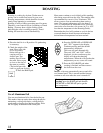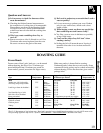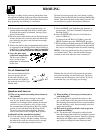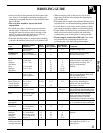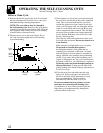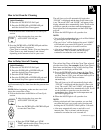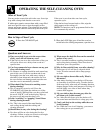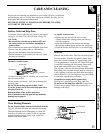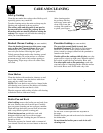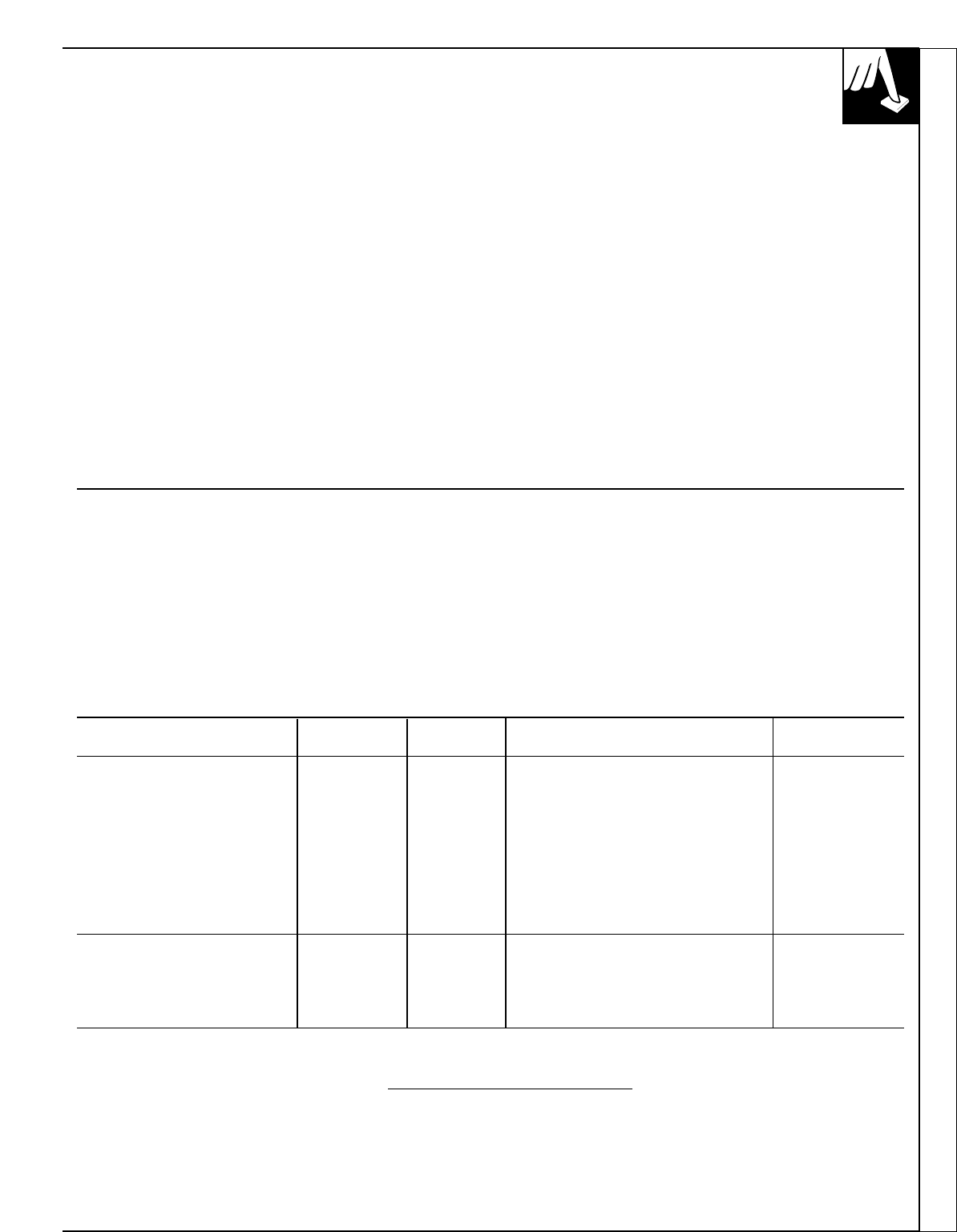
19
Roasting
Questions and Answers
Q. Is it necessary to check for doneness with a
meat thermometer?
A. Checking the finished internal temperature at
the completion of cooking time is recommended.
Temperatures are shown in the Roasting Guide.
For roasts over 8 lbs., check with thermometer
at half-hour intervals after half the cooking time
has passed.
Q. Why is my roast crumbling when I try to
carve it?
A. Roasts are easier to slice if allowed to cool 10 to
20 minutes after removing them from the oven.
Be sure to cut across the grain of the meat.
Q. Do I need to preheat my oven each time I cook a
roast or poultry?
A. It is not necessary to preheat your oven. Preheat
only for very small roasts, which cook a short
length of time.
Q. When buying a roast, are there any special tips
that would help me cook it more evenly?
A. Yes. Buy a roast as even in thickness as possible,
or buy rolled roasts.
Q. Can I seal the sides of my foil “tent” when
roasting a turkey?
A. Sealing the foil will steam the meat. Leaving it
unsealed allows the air to circulate and brown
the meat.
Oven Approximate Roasting Time Internal
Type Temperature Doneness in Minutes per Pound Temperature °F.
Meat 3 to 5 lbs. 6 to 8 lbs.
Tender cuts; rib, high quality 325° Rare: 24–33 18–22 140°–150°†
sirloin tip, rump or top round* Medium: 35–39 22–29 150°–160°
Well Done: 40–45 30–35 170°–185°
Lamb leg or bone-in shoulder* 325° Rare: 21–25 20–23 140°–150°†
Medium: 25–30 24–28 150°–160°
Well Done: 30–35 28–33 170°–185°
Veal shoulder, leg or loin* 325° Well Done: 35–45 30–40 170°–180°
Pork loin, rib or shoulder* 325° Well Done: 35–45 30–40 170°–180°
Ham, precooked 325° To Warm:
17
–
20 minutes per pound (any weight)
115°–120°
Poultry 3 to 5 lbs. Over 5 lbs.
Chicken or Duck 325° Well Done: 35–40 30–35 185°–190°
Chicken pieces 350° Well Done: 35–40 185°–190°
10 to 15 lbs. Over 15 lbs. In thigh:
Turkey 325° Well Done: 18–25 15–20 185°–190°
*For boneless rolled roasts over 6 inches thick, add 5 to 10 minutes per pound to times given above.
†The U. S. Department of Agriculture says
“Rare beef is popular, but you should know that cooking it to only 140°F. means some
food poisoning organisms may survive.” (Source: Safe Food Book.—Your Kitchen Guide. USDA Rev. June 1985.)
ROASTING GUIDE
Frozen Roasts
Frozen roasts of beef, pork, lamb, etc., can be started
without thawing, but allow 10 to 25 minutes per
pound additional time (10 minutes per pound for
roasts under 5 pounds, more time for larger roasts).
Make sure poultry is thawed before roasting.
Unthawed poultry often does not cook evenly. Some
commercial frozen poultry can be cooked successfully
without thawing. Follow the directions given on the
package label.



